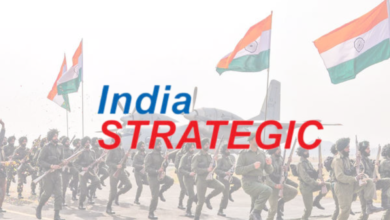‘Let us make UN more efficient’: World Leaders
French President Emmanuel Macron backs India’s bid for UNSC permanent seat
By R Anil Kumar
-
French President stressed the need for reforms within the UN to make it more effective and representative, particularly in light of the challenges posed by the current structure of the Security Council
-
“We have a Security Council that is blocked…Let’s make the UN more efficient. We have to make it more representative,” Macron said at the United Nations General Assembly in New York
-
Macron’s remarks came days after PM Narendra Modi, in his address to the Summit of the Future, emphasised that reforms in institutions were essential for global peace and development
-
The call for India’s permanent membership has also been echoed by other global leaders
UNITED NATIONS, September 27. French President Emmanuel Macron has voiced strong support for India’s inclusion as a permanent member of a reformed United Nations Security Council (UNSC), along with Germany, Japan, Brazil, and two African nations.

Advocating the expansion of the United Nations Security Council (UNSC), French President Emmanuel Macron has supported India’s bid among other nations for permanent membership of the UNSC.
“Germany, Japan, India and Brazil should be permanent members, as well as two countries that Africa would designate to represent it. New elected members should also be admitted,” Mr Macron said while addressing the general debate at the 79th session of the UN General Assembly in New York early Thursday, September 26, India time.
The French President stressed the need for reforms within the UN to make it more effective and representative, particularly in light of the challenges posed by the current structure of the Security Council.
“The United Nations should not be discarded, but rather reformed to reflect today’s realities,” he said.
He said that the current Security Council, often blocked by conflicting interests, needs to evolve.
“Is there a better system? I don’t think so. So, let’s just make these United Nations more effective, first by perhaps making them more representative. That is why France and I repeat here, is in favour of the Security Council being expanded,” Mr Macron said.
The French President said that he hopes that “this reform will also make it possible to change working methods, to limit the right of veto in the event of mass crime and to focus on operational decisions that are necessary to maintain international peace and security. This is what we must have the courage and audacity to do and that we must carry forward with the current permanent members.”
Earlier, Chilean President Gabriel Boric Font also advocated for India’s inclusion, proposing a deadline for the reform to align the UNSC with modern geopolitical realities by the UN’s 80th anniversary.
The call for India’s permanent membership has also been echoed by other global leaders, including US President Joe Biden, who reiterated Washington’s full support for India’s bid during his recent bilateral meeting with Prime Minister Narendra Modi.
Russia, too, continues to back India’s aspiration for a permanent seat, with the country’s Foreign Minister Sergei Lavrov emphasising the need for greater representation of developing countries in the council during the ongoing annual UN event.
The growing consensus among world leaders highlights the urgency of reforming the UNSC to reflect the contemporary global order and ensure more inclusive and effective international governance.
India has pushed several times for long-pending reform of the UN Security Council, seeking its permanent membership.
India argues that the 15-nation council founded in 1945 is not fit for purpose in the 21st Century and does not reflect contemporary geo-political realities.
Presently, the UNSC comprises five permanent members — Russia, the UK, China, France and the United States, and 10 non-permanent members, which are elected for a two-year term by the General Assembly of the United Nations.





